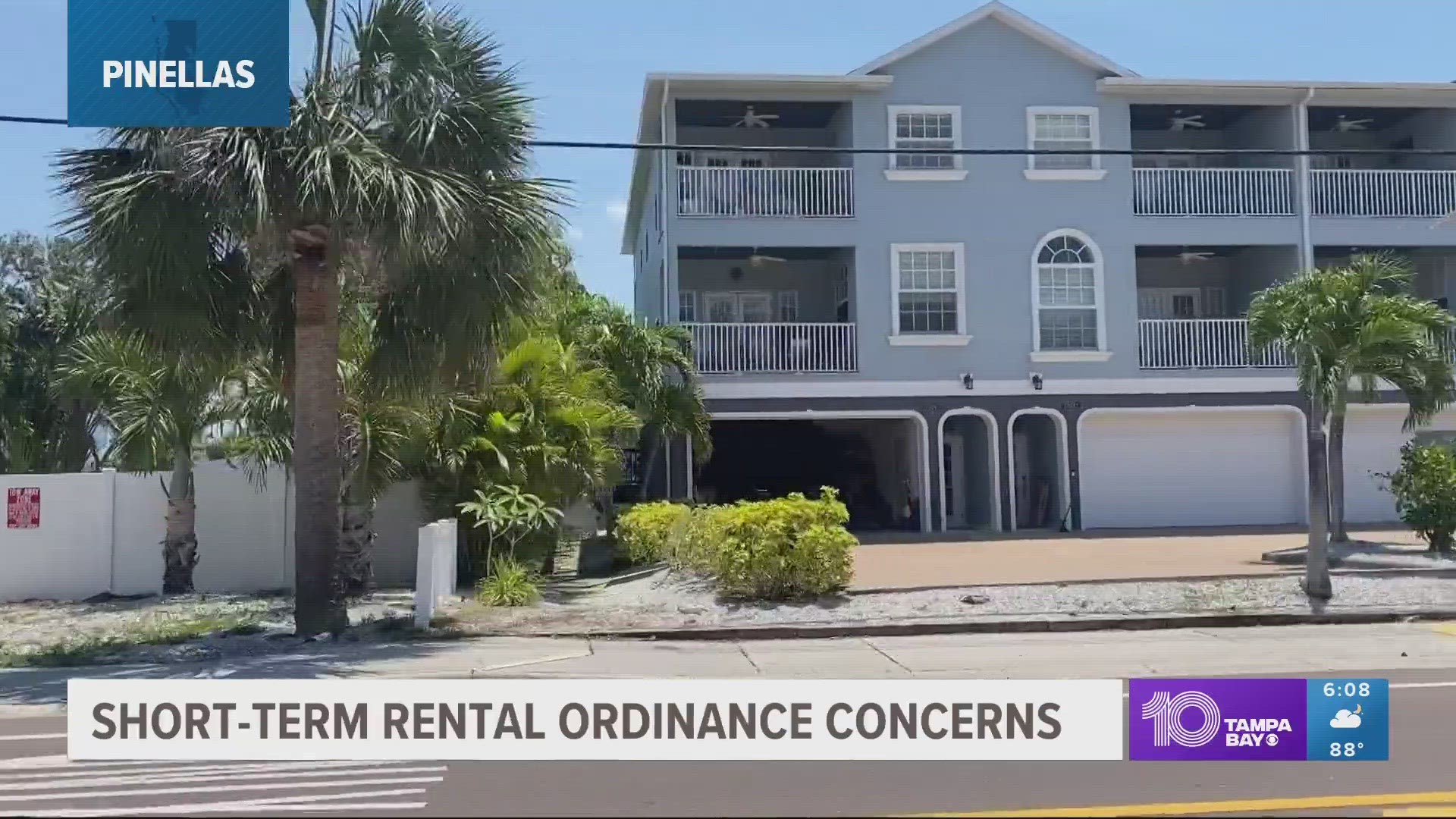INDIAN ROCKS BEACH, Fla. — The Indian Rocks Beach city commission passed new rules for short-term rentals, like Airbnb's and Vrbo's. The unanimous vote added a list of items vacation homeowners must comply with in order to rent out their properties in the small gulf coast town.
Longtime Indian Rocks Beach residents pushed for stricter policies to keep the character of their small beach town intact.
The issue created a divide between the city, with long-time residents claiming tourists ruin their city. Property owners and managers pointed out all the tourism adds improving properties purchased for short-term rental purposes and bringing in more tourism dollars.
But the short-term rental owners feel this ordinance is an overstep that will likely cost them business.
"No question about it," Kenny Hayslett said. "That's lost revenue for all the hard work in small business owners up and down our beaches that really rely on that."
Hayslett owns Beach Time Rentals, a property management company that oversees roughly 100 properties in Pinellas County. Twenty-five of those listings are in Indian Rocks Beach.
"Unfortunately, these restrictions make it tougher for those that want to come down and enjoy our beaches," Hayslett said.
Depending on the district, vacation homes cannot have more than 10 to 12 people and there must be one parking space per bedroom.
Hayslett says some of the new rules are impossible to follow.
"It was set up potentially as a snare to try and set a path to set violations in place to try and to ultimately pull an owner's license from them because they've been non-compliant," Hayslett said.
Noise levels must be below 60 decibels during the day and 55 decibels overnight.
Fifty-five decibels is about as loud as an electric fan running, or a quiet conversation.
"Florida counts on tourism, they count on people traveling to our state to enjoy our world-class beaches," Hayslett said. "But as more and more regulations are put in place, that's going to put a chokehold on what our biggest income bases, which is tourism and the tax dollars that these folks are generating as a result of folks that come and visit."
Vacation homeowners will also have to pay a registration fee. The city says that the fee will cover costs for home inspections and code enforcement.
Those opposed to this ordinance say they want to see all rentals, short-term or not, treated the same. An attorney representing 50 short-term rental owners says this ordinance will likely be challenged in the near future.
Malique Rankin is a general assignment reporter with 10 Tampa Bay. You can email her story ideas at mrankin@10tampabay.com and follow her Facebook, Twitter, and Instagram pages.

